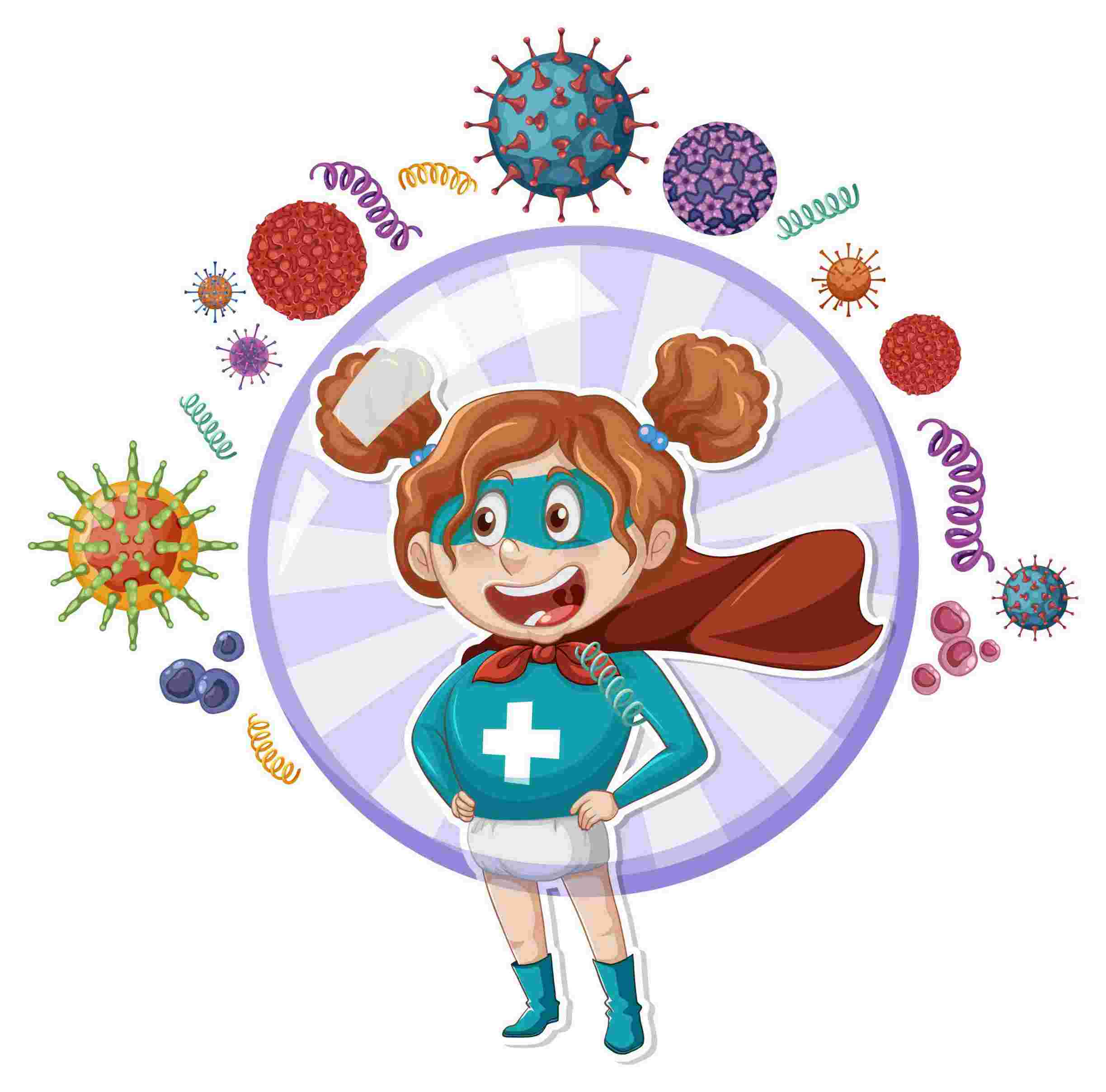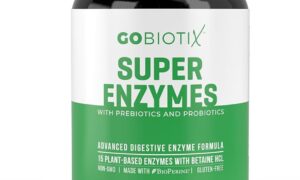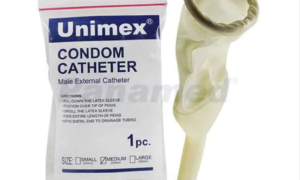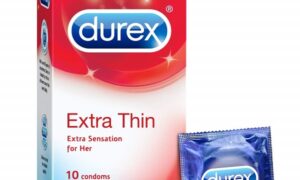Culturelle Kids Daily Probiotic is often recommended as the best probiotic for children. It supports digestive health and strengthens the immune system.
Probiotics (Best Probiotic for Kids) are beneficial bacteria that play a crucial role in maintaining gut health. They are especially important for children, as a healthy digestive system can boost overall well-being. Culturelle Kids Daily Probiotic contains Lactobacillus GG, a well-researched strain known for its safety and effectiveness.
This probiotic is designed to help reduce occasional digestive upset, support natural immune defenses, and promote a balanced microbiome. Available in easy-to-administer forms like chewables and packets, Culturelle Kids Daily Probiotic is both convenient and effective. Always consult your pediatrician before starting any new supplement for your child.
Importance Of Probiotics
Probiotics are essential for kids’ overall health and well-being. They are live bacteria and yeasts that are beneficial for the digestive system. Probiotics help maintain a healthy balance of gut flora, which is crucial for good digestion, a strong immune system, and overall growth. This article explores the importance of probiotics, focusing on the best options for kids.
Benefits For Kids
Probiotics offer numerous benefits for children. They can significantly improve various aspects of health:
- Stronger Immune System: Probiotics enhance the body’s natural defenses, helping to fight off infections and illnesses.
- Better Digestion: Probiotics promote healthy digestion, reducing issues like constipation, diarrhea, and bloating.
- Nutrient Absorption: Probiotics help in the absorption of essential nutrients like vitamins and minerals.
- Allergy Reduction: Regular intake of probiotics may reduce the risk of developing allergies and asthma.
Here is a table that highlights some key benefits:
| Benefit | Description |
|---|---|
| Immune System Support | Helps in fighting infections and illnesses |
| Improved Digestion | Reduces constipation, diarrhea, and bloating |
| Better Nutrient Absorption | Aids in absorbing vitamins and minerals |
| Allergy Reduction | May lower the risk of allergies and asthma |
Gut Health Connection
The connection between probiotics and gut health is vital. A healthy gut is essential for kids to grow and thrive. Probiotics play a significant role in maintaining this balance. Here are some key points:
- Balance Gut Flora: Probiotics help maintain a healthy balance of good and bad bacteria in the gut.
- Prevent Infections: A balanced gut flora can prevent harmful bacteria from causing infections.
- Reduce Inflammation: Probiotics can reduce inflammation in the gut, which is crucial for overall health.
Probiotics also support the production of short-chain fatty acids that nourish the gut lining. These acids help to strengthen the gut barrier, preventing harmful substances from entering the bloodstream.
Here is a quick overview of how probiotics contribute to gut health:
- Balance: Maintains the balance of gut bacteria
- Infection Prevention: Reduces the risk of gut infections
- Inflammation Reduction: Minimizes gut inflammation
- Gut Lining Support: Strengthens the gut barrier
Ensuring your child gets the right probiotics can make a significant difference in their gut health, leading to a happier, healthier life.
:upscale()/2023/08/10/914/n/49020772/49a1a5d7205ad5b3_3_-_multi.jpg)
Credit: www.popsugar.com
Types Of Probiotics
Finding the best probiotic for kids is essential for their digestive health. Probiotics are good bacteria that help keep the gut healthy. There are different types of probiotics, each with unique benefits. Let’s explore the most common types of probiotics: Lactobacillus strains and Bifidobacterium strains.
Lactobacillus Strains
Lactobacillus strains are among the most well-known probiotics. They are commonly found in yogurt and other fermented foods. These strains help break down food and absorb nutrients, making them essential for a healthy gut.
Benefits of Lactobacillus Strains:
- Boosts Immunity: Helps the body fight off bad bacteria and viruses.
- Aids Digestion: Breaks down lactose, making dairy easier to digest.
- Reduces Diarrhea: Effective in treating and preventing diarrhea in kids.
Different types of Lactobacillus strains offer various benefits. Here’s a quick overview:
| Lactobacillus Strain | Benefits |
|---|---|
| Lactobacillus acidophilus | Helps with lactose intolerance and boosts the immune system. |
| Lactobacillus rhamnosus | Reduces the risk of respiratory infections and eczema. |
| Lactobacillus reuteri | Supports oral health and reduces colic in infants. |
Bifidobacterium Strains
Bifidobacterium strains are another popular type of probiotic. They are naturally found in the intestines and are crucial for gut health. These strains help balance the good and bad bacteria in the gut.
Benefits of Bifidobacterium Strains:
- Supports Digestive Health: Helps break down food and absorb nutrients.
- Boosts Immunity: Enhances the body’s natural defense mechanisms.
- Reduces Inflammation: Helps to reduce gut inflammation and related issues.
Different Bifidobacterium strains provide specific benefits. Here’s a brief overview:
| Bifidobacterium Strain | Benefits |
|---|---|
| Bifidobacterium lactis | Improves digestion and boosts immune function. |
| Bifidobacterium breve | Reduces constipation and supports gut health. |
| Bifidobacterium infantis | Helps in reducing colic and improving bowel movements in infants. |
Choosing the right probiotic for your kid can help improve their overall health. Understanding the different types of probiotics is the first step in making an informed decision.
Choosing The Right Probiotic
Choosing the right probiotic for your child is vital for their overall health. Probiotics can help boost their immune system, improve digestion, and even enhance their mood. With so many options available, it can be overwhelming to decide which probiotic is best. Let’s explore how to choose the right probiotic for your kids.
Age Appropriateness
Choosing an age-appropriate probiotic is crucial. Different age groups have varying needs. Babies, toddlers, and older children require different strains and dosages of probiotics. Here’s what to look for based on age:
- Infants (0-12 months): Look for probiotics that contain Bifidobacterium species. These are beneficial for developing a healthy gut.
- Toddlers (1-3 years): Probiotics with Lactobacillus and Bifidobacterium strains are ideal. They help with digestion and immune support.
- Older children (4+ years): Consider multi-strain probiotics. They support overall gut health and help with various health issues like allergies and eczema.
Consult with your pediatrician before starting any probiotic supplement. This ensures the right dosage and strain for your child’s specific needs.
Formulations Available
Probiotics come in various formulations. The best one depends on your child’s preference and ease of use. Here are some common types:
- Powders: Easy to mix with food or drinks. Ideal for younger kids who can’t swallow pills.
- Chewable Tablets: Tasty and easy to consume. Great for older children who enjoy flavored supplements.
- Liquid Drops: Convenient for infants. They can be added to breast milk, formula, or directly into the mouth.
- Capsules: Suitable for older kids who can swallow pills. They often contain higher doses of probiotics.
Check the labels for added sugars, artificial flavors, and allergens. Choose a formulation that fits your child’s lifestyle and dietary needs.
Top Probiotic Brands
Finding the best probiotic for kids can be a daunting task. Probiotics support gut health, boost immunity, and aid digestion. Several top probiotic brands cater specifically to kids, ensuring they get the best care. Let’s explore some of the most popular choices and compare the leading brands.
Popular Choices
Parents often seek out the best probiotics for their kids. Here are some popular choices:
- Culturelle Kids Daily Probiotic: Known for its Lactobacillus GG strain, it supports digestive health and boosts the immune system.
- Garden of Life RAW Probiotics Kids: Organic and packed with 23 probiotic strains, it’s a favorite for its comprehensive benefits.
- Renew Life Kids Probiotic: Contains 3 billion live cultures and 6 probiotic strains, promoting digestive balance.
- SmartyPants Kids Prebiotic and Probiotic: Combines prebiotics and probiotics in a gummy form that kids love.
- Nordic Naturals Probiotic Gummies Kids: Offers 1.5 billion CFU per serving, supporting gut and immune health.
These brands are trusted by parents and pediatricians. They provide a range of benefits, from improving gut health to supporting the immune system. Choosing the right probiotic depends on your child’s specific needs and preferences.
Brand Comparisons
Comparing the top probiotic brands helps in making an informed decision. Here’s a detailed comparison:
| Brand | Strains | CFU Count | Form | Special Features |
|---|---|---|---|---|
| Culturelle Kids Daily Probiotic | 1 | 5 Billion | Chewable Tablets | Supports Immune Health |
| Garden of Life RAW Probiotics Kids | 23 | 5 Billion | Powder | Organic, Non-GMO |
| Renew Life Kids Probiotic | 6 | 3 Billion | Chewable Tablets | Gluten-Free |
| SmartyPants Kids Prebiotic and Probiotic | 2 | 4 Billion | Gummies | Prebiotic Fiber Included |
| Nordic Naturals Probiotic Gummies Kids | 2 | 1.5 Billion | Gummies | Gelatin-Free |
Culturelle Kids Daily Probiotic is great for immune support. Garden of Life RAW Probiotics Kids offers a high number of strains. Renew Life Kids Probiotic is ideal for gluten-sensitive kids. SmartyPants Kids Prebiotic and Probiotic combines prebiotics and probiotics. Nordic Naturals Probiotic Gummies Kids is a tasty, gelatin-free option.
Consider these factors and match them with your child’s needs. Each brand offers unique benefits, making it easier to find the perfect probiotic for your child.
Dosage Guidelines
Choosing the best probiotic for kids can be challenging. Understanding the right dosage guidelines ensures that children get the full benefits without any side effects. This section provides detailed guidelines on the recommended amounts and the best times to administer probiotics.
Recommended Amounts
Determining the right amount of probiotics for kids is crucial. The dosage depends on the child’s age and health needs. Here are some general guidelines:
- Infants (0-12 months): 1-2 billion CFUs daily
- Toddlers (1-3 years): 2-5 billion CFUs daily
- Preschoolers (4-5 years): 5-10 billion CFUs daily
- School-age (6-12 years): 10-15 billion CFUs daily
It is always best to follow the specific product’s dosage instructions. Consulting a pediatrician ensures the correct dosage for your child’s needs.
Here is a simple table summarizing the recommended daily amounts:
| Age Group | Recommended Amount (CFUs) |
|---|---|
| Infants (0-12 months) | 1-2 billion |
| Toddlers (1-3 years) | 2-5 billion |
| Preschoolers (4-5 years) | 5-10 billion |
| School-age (6-12 years) | 10-15 billion |
Note: Always start with the lower end of the range and gradually increase the dosage.
Timing For Best Results
The timing of probiotics plays a vital role in their effectiveness. For best results, consider the following tips:
- Morning: Give probiotics on an empty stomach, 30 minutes before breakfast. The stomach acid is lower, ensuring more probiotics reach the intestines.
- Evening: Another good time is right before bedtime. This allows probiotics to work overnight, promoting a healthy gut flora balance.
- With meals: If taken with meals, choose those with healthy fats. This improves the survival rate of probiotics through the digestive tract.
Consistency is key. Administer probiotics at the same time each day. This helps in maintaining a steady level of beneficial bacteria in the gut.
Here is a simple schedule for optimal results:
| Time | Action |
|---|---|
| Morning (30 mins before breakfast) | Administer probiotics on an empty stomach |
| Evening (before bedtime) | Give probiotics to work overnight |
Remember to keep the probiotics in a cool, dry place. Some require refrigeration. Always check the product label for storage instructions.

Credit: www.medicalnewstoday.com
Potential Side Effects
Probiotics are great for kids as they help keep their gut healthy. But it’s important to know the potential side effects. While most kids tolerate probiotics well, some may experience mild to serious reactions. Let’s explore these side effects to ensure your child’s safety.
Common Reactions
Most kids do well with probiotics, but some may experience common reactions. These are usually mild and go away on their own. Here are some of the most common reactions:
- Gas: Some kids may feel bloated or gassy. This is because probiotics change the bacteria in the gut.
- Diarrhea: Probiotics can sometimes cause loose stools. This usually happens when the body is adjusting to the new bacteria.
- Stomach Pain: Kids may complain of a tummy ache. This is often due to gas or changes in the gut.
- Allergic Reactions: Though rare, some kids may have an allergy to probiotics. Look for signs like rash, itching, or swelling.
If your child experiences these reactions, monitor them closely. Most of the time, these side effects are temporary and will resolve in a few days.
When To Consult A Doctor
While common reactions are usually mild, some side effects may need a doctor’s attention. Here are signs that you should seek medical advice:
- Severe Diarrhea: If your child has watery stools for more than two days, consult a doctor. This can lead to dehydration.
- High Fever: A fever over 100.4°F (38°C) needs medical attention. This could be a sign of infection.
- Persistent Stomach Pain: If the pain doesn’t go away or gets worse, talk to a doctor.
- Allergic Reactions: If your child has trouble breathing, swelling, or severe rash, seek immediate medical help.
It’s always better to be safe. If you’re unsure about any reaction, call your pediatrician. They can help determine if the probiotic is the cause and advise on next steps.
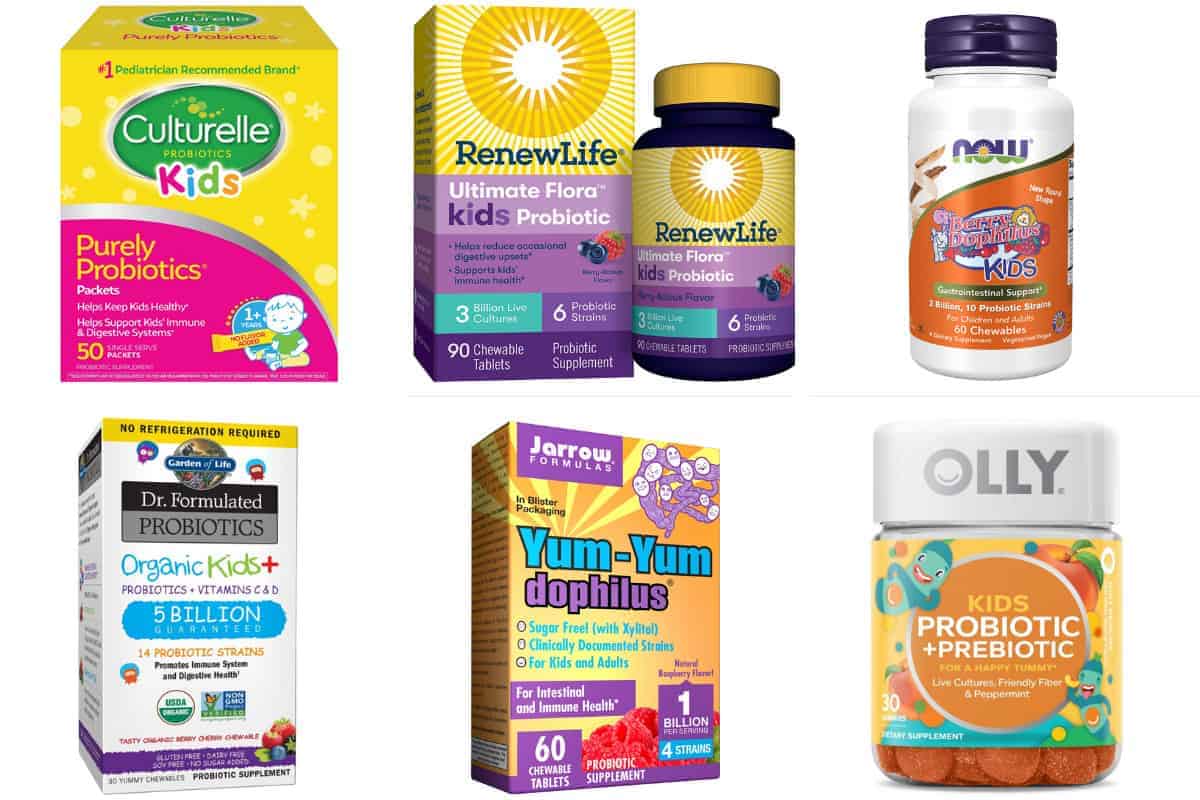
Credit: www.yummytoddlerfood.com
Frequently Asked Questions
What Is The Best Children’s Probiotic?
Culturelle Kids Daily Probiotic is often recommended as the best children’s probiotic. It supports digestive health and boosts immunity. Always consult your pediatrician before starting any probiotic.
Should A Child Take Probiotics Daily?
Consult a pediatrician before giving your child daily probiotics. Benefits and needs vary by individual health conditions.
How Do I Choose A Probiotic For My Child?
Choose a probiotic with strains suitable for children. Check for age-specific formulations. Consult a pediatrician. Ensure product quality and check expiration dates. Read user reviews for insights.
Should Kids Take Prebiotics Or Probiotics?
Kids can benefit from prebiotics and probiotics for gut health. Consult a pediatrician before introducing them. Choose age-appropriate products.
What Is The Best Probiotic For Kids?
The best probiotic for kids is one with multiple strains and high CFU count for gut health.
Conclusion
Choosing the best probiotic for kids can boost their overall health and immunity. Always consult with a pediatrician before starting any supplement. Prioritize quality and specific strains for your child’s needs. Investing in their gut health now sets the foundation for a healthier future.
Make informed choices for their well-being.

